To further enhance the international perspective of students in agricultural economics and improve the quality of cultivating top-tier innovative talents, the Department of Agricultural Economics and Management of the School of Public Affairs at Zhejiang University organized the first "Top Agricultural Economics" international study exchange program with the University of Göttingen from August 13 to August 19, 2024. This initiative was part of the school's "Top Agricultural Economics Summer International Exchange Program" and the university's Graduate School's "Excellence in Graduate Education Action—Global Competitiveness Enhancement Special Program." The project was led by Professor Yi Fujin and Associate Researcher Zheng Linyi from the China Academy for Rural Development (CARD) at Zhejiang University. A total of 18 doctoral students, graduate students in MAE, and undergraduate students participated in the visit. The group was hosted by Professor Yu Xiaohua, Head of the Department of Agricultural Economics and Rural Development at the University of Göttingen, and his team. Assistant Professor Zhang Wendong from the Dyson School of Applied Economics and Management at Cornell University accompanied the delegation, participating in various exchange activities, including field research, classroom teaching, academic seminars, and cultural visits.
On the morning of August 14, Professor Yu Xiaohua led the faculty and students on a visit to the globally renowned agricultural machinery company Raiffeisen Technik. Raiffeisen Technik is a company specializing in used agricultural machinery, offering a wide range of brands including Claas, Fendt, Deutz-Fahr, Massey-Ferguson, CTM, Suer, and JCB. The company provides services to agricultural producers, including the purchase and rental of second-hand tractors, combine harvesters, forage harvesters, and balers. During the visit, the company’s representative, Dorde Vukosavljevic, introduced the scope of the company's business, its operational status, and the performance of different machinery brands. The faculty and students were also invited into the driver's cab to experience operating the machinery firsthand, providing them with an immersive experience of how advanced machinery intersects with agricultural production. It was noted that, influenced by factors such as government subsidies, machine performance, and maintenance costs, German farmers typically replace their equipment every five years. This periodic equipment renewal not only alleviates the financial burden on farmers but also serves agricultural production more effectively.
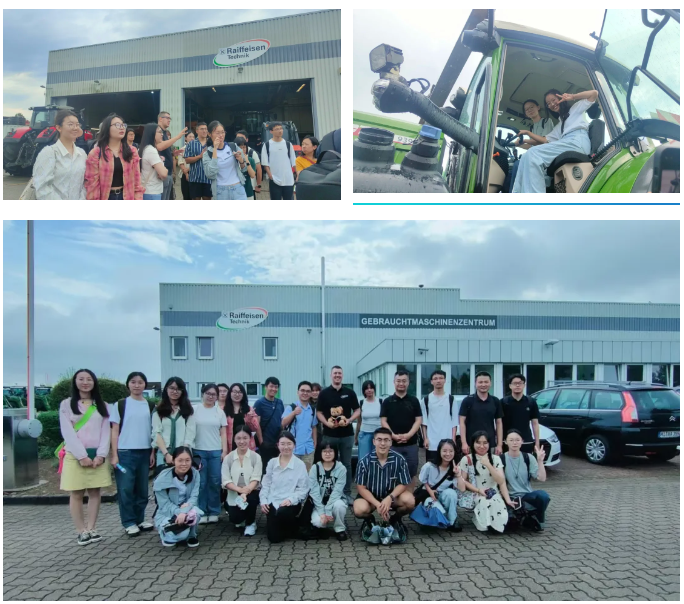
On the afternoon of August 14, faculty and students from Zhejiang University visited the University Farm Reinshoff and Reilihausen Farm at the University of Göttingen for a study tour. Dr. Dirk Augustin, the farm manager, guided the group through the farms' trout farming facility, beef and dairy cattle breeding centers, mini pig breeding station, and the biogas demonstration site. He provided detailed explanations of trout farming techniques, dairy cattle breeding methods, and the purchase and use of agricultural machinery on the farms. Following the tour, Dr. Dirk Augustin delivered an academic lecture titled "Practical Problems in German Agriculture," offering insightful and engaging discussions that greatly enhanced the students' understanding and knowledge of Germany's agricultural industry.
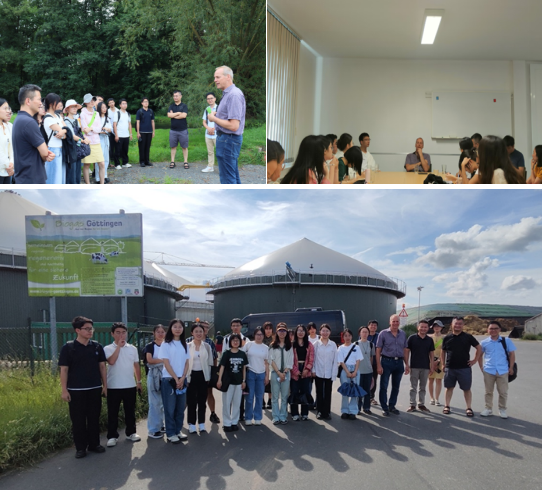
On August 15, four professors from the Department of Agricultural Economics at the University of Göttingen conducted classroom teaching sessions and academic seminars. Dr. Elisa Bayer delivered an academic lecture titled "Animal Welfare Policies in Germany," where she discussed the evolution of animal welfare policies in Germany, the impact of these regulations on the country's pig farming industry, and the design of incentive policies aimed at improving animal welfare. Professor Tobias Plieninger presented on "Social-ecological Perspectives on the Transforming Land Management toward Sustainability." His lecture covered the role of agri-food systems in sustainable development, the importance of transitioning land management towards sustainability, a social-ecological approach to land management, understanding competing development agendas, and the principles for designing agri-environmental schemes. He also introduced the academic concept of "High Nature Value Farmlands," encouraging students to adopt a systems perspective in their academic thinking. Dr. Tim Knöpfel gave a lecture on "Analysis of Trends and Dynamics in the German Brown Shrimp Fishery." He discussed global seafood consumption trends, an overview of aquaculture and fisheries production, an overview of EU fisheries policies, and the future challenges in the value chain of Germany’s fisheries production. Finally, Professor Yu Xiaohua presented a special report titled "Agricultural Economics in the University of Göttingen," where he provided a comprehensive overview of the university and its Department of Agricultural Economics and Rural Development, highlighting its long history, development, and overall strengths. He also discussed the university's influence on China and the world. The reports were rich in data and vividly presented, sparking students' research interests and academic enthusiasm. The presentations were well-received, leading to lively discussions among the faculty and students in attendance.
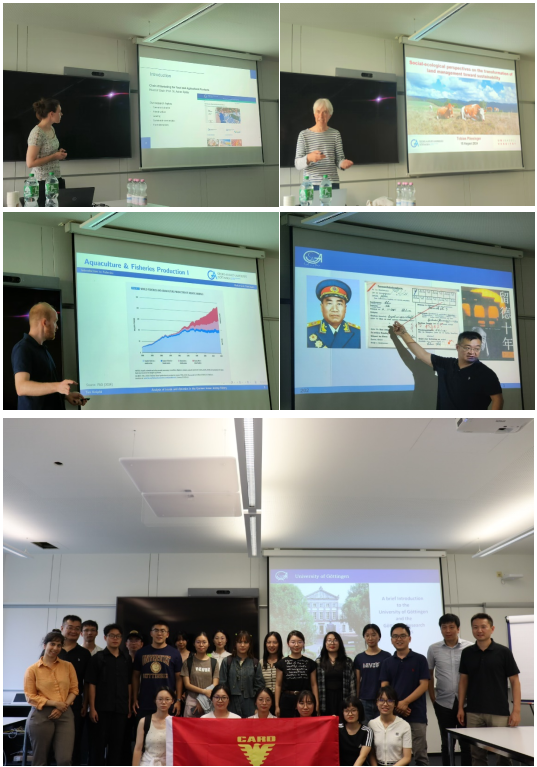
On the morning of August 16, Professor Yu Xiaohua organized a City Tour of Göttingen for the faculty and students. The group strolled through Göttingen, visiting the former residence of Marshal Zhu De, one of the founding leaders of the PRC, where they learned about his revolutionary contributions. They also paid their respects at the graves of renowned mathematicians Gauss and Riemann, as well as physicist Max Planck, gaining deeper insights into the historical contributions of these great scientists. The tour also included a visit to the city's scenic landmarks, offering participants a chance to experience Göttingen's local culture and customs. In the afternoon, the group visited the forestry laboratory at the University of Göttingen, where they were introduced to the latest research findings and technological applications in modern forestry science. The advanced facilities and innovative research methods provided the students and faculty with a profound understanding of the critical role science and technology play in conservation and sustainable development. Following the lab visit, Professor Yu led the group on a hiking tour through the natural landscapes of Göttingen. The group walked along picturesque trails, exploring the forested areas and experiencing the unique natural charm of the city. In the evening, the faculty and students from both universities gathered for a friendly exchange event in the form of a BBQ dinner. In a relaxed and lively atmosphere, students shared their experiences, exchanged insights, and discussed academic research, further strengthening the bond between the two schools.
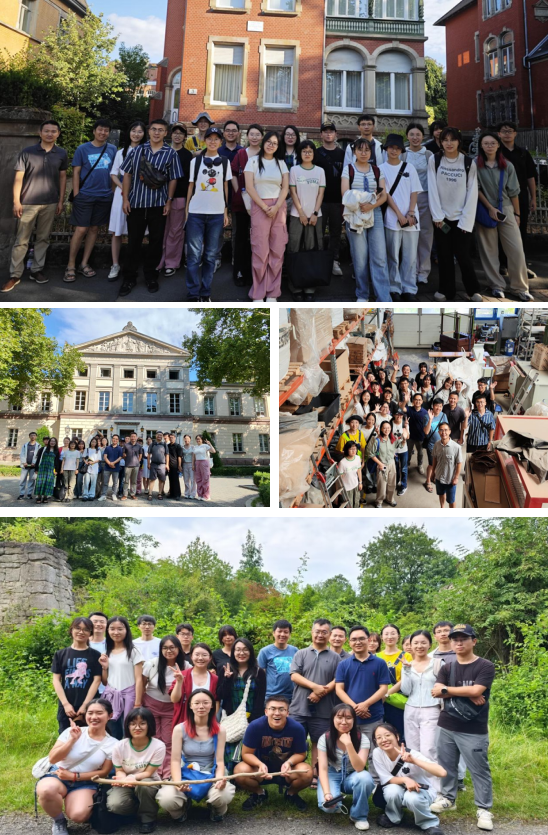
The exchange extended beyond Göttingen. From August 17 to 19, during their study tour and return journey, the faculty and students expanded their cultural exploration activities. They visited several world-renowned cities, including Goslar, Cologne, and Frankfurt. In Goslar, they toured the Imperial Palace. In Cologne, they marveled at the iconic Cologne Cathedral. In Frankfurt, they explored landmarks such as Goethe's House and the Old Opera House. These visits allowed the group to experience the rich cultural heritage and local customs of different German cities, deepening their understanding of the country's diverse historical and cultural landscape.

The exchange also extended beyond cultural exploration. On the evening of August 18, PhD students Zhi Xiaoxu and Xu Zilong hosted an engaging academic salon for the group. Zhi Xiaoxu presented his research findings titled "Rent-seeking Vampires under Information Asymmetry: Evidence from Agricultural Cooperative Subsidy Policy in China," while Xu Zilong shared a working paper titled "The Impact of Supply Chain Integration on Enterprise Resilience: A Study of Pig Farming."
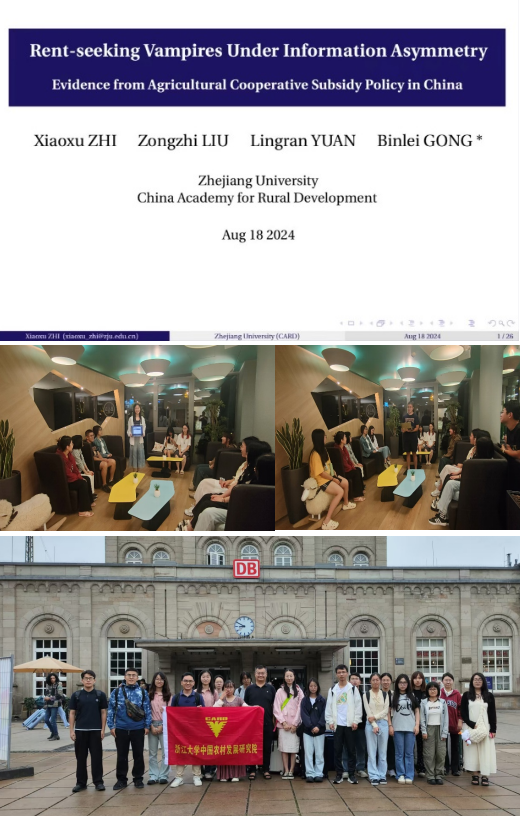
During the week-long exchange program, the faculty and students embraced the concept of “seeing China from outside China.” By visiting German farms, forests, urban streets, agricultural machinery companies, and research facilities, they used “the experiences of others” as a reference point. This not only deepened their understanding of China's path toward agricultural and rural modernization in a globalized context but also strengthened their commitment to serving China's rural development (the "Three Rural Issues"). Looking ahead, the Department of Agricultural Economics at Zhejiang University plans to further expand its international exchanges by collaborating with more world-renowned institutions. Through mutual learning, resource sharing, and win-win cooperation, the department aims to provide intellectual support and cultivate talent to advance agricultural and rural modernization in China.


